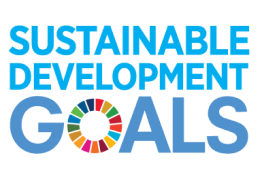
PERFORMANCE REPORT 2017
TRANSFORMING THE GLOBAL FOOD SYSTEM
WELCOME MESSAGES
READ MOREThe world’s food system is on the wrong trajectory. Most of the world’s population eats too little, too much, or the wrong type of food – at an unsustainable cost to the environment, health, and political stability.


Marco Ferroni on CGIAR’s history of driving consequential, science-based contributions to food security and nutrition, and why global funding for agriculture must be sustained.


Elwyn Grainger-Jones on how CGIAR research plays a central role in addressing global challenges with a diversity and depth of assets, activities and partnerships, and a history of delivering impact.


CGIAR research produces knowledge and technology to reduce poverty, enhance food and nutrition security, and improve natural resources. This research is impacting lives around the world.
CGIAR portfolio progress in 2017
Policies, legal instruments, investments
Innovations, including 348 available for uptake
Partnerships reported
Participants (40% women) in CGIAR training courses or events

TRANSFORMING THE GLOBAL FOOD SYSTEM
Progress towards the Sustainable Development Goals
CGIAR is positioned to make a real difference in the trajectory of humanity and the planet, and make a critical contribution to the Sustainable Development Goals. READ MOREBEST OF 2017
PUBLICATIONS HIGHLIGHTS
peer-reviewed publications authored/co-authored by CGIAR researchers
in Open Access
of all CGIAR publications were tracked via Altmetric
799 of these publications received attention from social media, news media and in policy documents
-
45
policy document citations from institutions such as FAO, the World Health Organization, the World Economic Forum and the World Bank
-
540
mentions in sources such as Newsweek, National Geographic, The Japan Times, The Times of India, Al Jazeera, Business Insider, El País, The Guardian, The Zimbabwe Star, AllAfrica, and BBC News
-
12,906
tweets
-
16,473
saves on Mendeley
-
PUBLICATION
Contribution of Improved Rice Varieties to Poverty Reduction and Food Security in Sub-Saharan Africa
How improved varieties are impacting millions in sub-Saharan Africa.
DOWNLOAD PUBLICATION -
-
PUBLICATION
Making the case for policies that acknowledge the role of trees and forests in water, energy and carbon cycles.
DOWNLOAD PUBLICATION -
PUBLICATION
As farms grow to keep pace with populations, attention is needed to ensure production diversity.
DOWNLOAD PUBLICATION -
PUBLICATION
Why agroforestry efforts in Ethiopia need to better understand the various uses farmers have for trees.
DOWNLOAD PUBLICATION -
PUBLICATION
Unraveling the diversity of African cattle and opportunities for sustainable improvement of livestock productivity.
DOWNLOAD PUBLICATION -
PUBLICATION
Linking regional realities to global goals, some informed scenarios for agriculture and food security in West Africa.
DOWNLOAD PUBLICATION -
PUBLICATION
Proposing the establishment of a Global Crop Improvement Network to benefit the world’s staple crops.
DOWNLOAD PUBLICATION -
PUBLICATION
Three global policies to curb the use of antimicrobials, linked to drug-resistant infections in animals and humans.
DOWNLOAD PUBLICATION -
PUBLICATION
How the make-up of cropland soils could impact global efforts on climate change.
DOWNLOAD PUBLICATION
IMPACT STORIES
More than 290 new varieties of 12 biofortified crops have been released or are in testing in 60 countries.
A USD 170 million scheme was launched using the new technology, targeting increased incomes for 2 million farmers and a reduced carbon footprint for 4 million ha.
Improved rice varieties have lifted 8 million people out of poverty and provided food security to 7.2 million in sub-Saharan Africa.
Improved strains of the freshwater tilapia fish continue to make significant contributions to food supply and livelihoods around the world.
Government approved a new policy on fecal sludge management and the safe recycling of human waste as fertilizer, using ‘circular economy’ technologies.
WORKING TOGETHER TO BOOST PERFORMANCE
CGIAR is working towards improving system performance. We will take bold steps forward to deliver high quality research through a commitment to partnership, transparency and accountability.
 Ann Tutwiler, Director General, Bioversity International, and CGIAR System Management Board member (July 2016-August 2018)
Ann Tutwiler, Director General, Bioversity International, and CGIAR System Management Board member (July 2016-August 2018) Key components of a new reporting system were approved in 2017, including a set of Common Results Reporting Indicators.
CGIAR Research Programs depend on integrated monitoring, evaluation, learning, and impact assessment to test their assumptions, learn, and improve their work.
CGIAR RESEARCH SUPPORT PLATFORMS
The CGIAR Excellence in Breeding Platform will modernize breeding programs, targeting the developing world for greater impact.
The CGIAR Genebank Platform supports the core activities of the CGIAR genebanks to conserve collections of plant genetic resources for food and agriculture.
The CGIAR Platform for Big Data in Agriculture is designed to leverage e-research and build new data-driven impact.
FUNDING & FINANCE
CGIAR assets
CGIAR has a wealth of experience and knowledge spanning 50 years, with a global network of 15 top-class Research Centers that implement 15 Research Programs and Platforms in partnership with 3,000+ organizations in more than 70 countries around the world.
Header photo credits: Peatlands fire, Indonesia, by A. Erlangga/CIFOR; Female empowerment discussion, Kenya, by C. Schubert/CCAFS; Genebank plant samples, Colombia, by N. Palmer/CIAT; Research on migration, Nepal, by M. Edliadi/CIFOR. Welcome messages photo by G. Smith/CIAT. Background photos: CGIAR Portfolio Progress in 2017 by M. Edliadi/CIFOR; Working Together to Boost Performance by D. Mills/WorldFish.






















